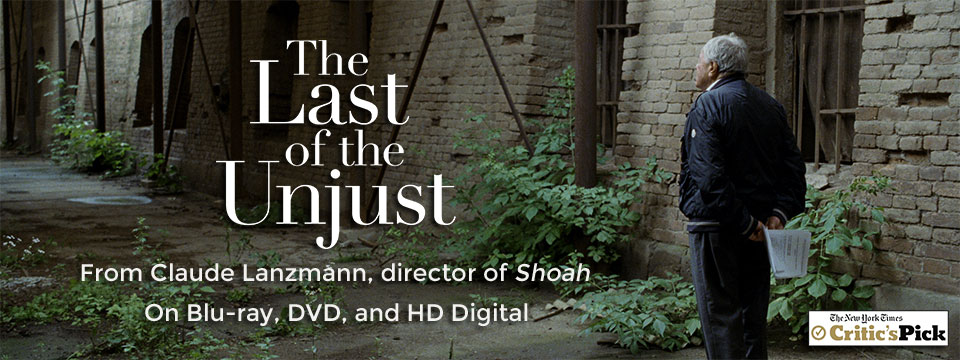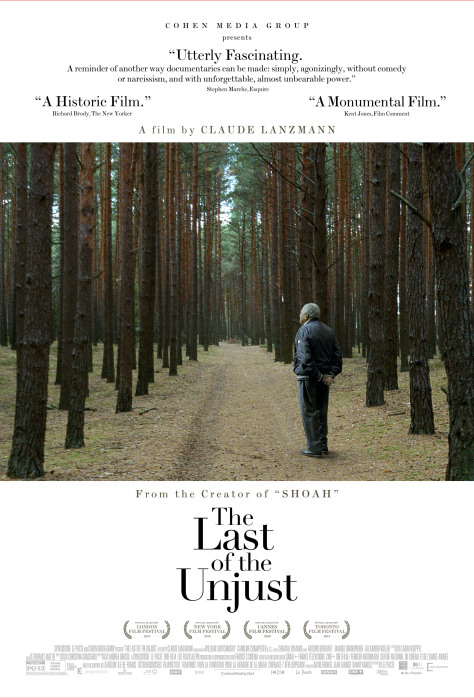
The Last of the Unjust
1975. In Rome, Claude Lanzmann filmed a series of interviews with Benjamin Murmelstein, the last President of the Jewish Council in the Theresienstadt ghetto in Czechoslovakia, the only Elder of the Jews" not to have been killed during the war. A rabbi in Vienna, following the annexation of Austria by Germany in 1938, Murmelstein fought bitterly with Adolf Eichmann, week after week for seven years, managing to help around 121,000 Jews leave the country, and preventing the liquidation of the ghetto.\r\n\r\n2012. Claude Lanzmann, at 87 – without masking anything of the passage of time on men, but showing the incredible permanence of the locations involved –exhumes these interviews shot in Rome, returning to Theresienstadt, the town “given to the Jews by Hitler”, a so-called model ghetto, but a ghetto of deceit chosen by Adolf Eichmann to dupe the world. We discover the extraordinary personality of Benjamin Murmelstein: a man blessed with a dazzling intelligence and a true courage, which, along with an unrivaled memory, makes him a wonderfully wry, sardonic and authentic storyteller.\r\n\r\nThrough these three periods, from Nisko in Poland to Theresienstadt, and from Vienna to Rome, the film provides an unprecedented insight into the genesis of the Final Solution. It reveals the true face of Eichmann, and exposes without artifice the savage contradictions of the Jewish Councils."
Fascinating and Impressive...The Last of the Unjust is the portrait of an individual whose actions still defy comprehension, and the self-portrait of an artist consumed by the past.
This is a mesmerizing film and all who want to understand the oppressive past would do well to experience Lanzmann’s overview.
Wolf's Entertainment Guide
A historic film
The New Yorker
A monumental film.
film comment
Utterly fascinating. A reminder of another way documentaries can be made: simply, agonizingly, without comedy or narcissism, and with unforgettable, almost unbearable power.
Esquire
| Name | Role |
| Claude Lanzmann | Director |


